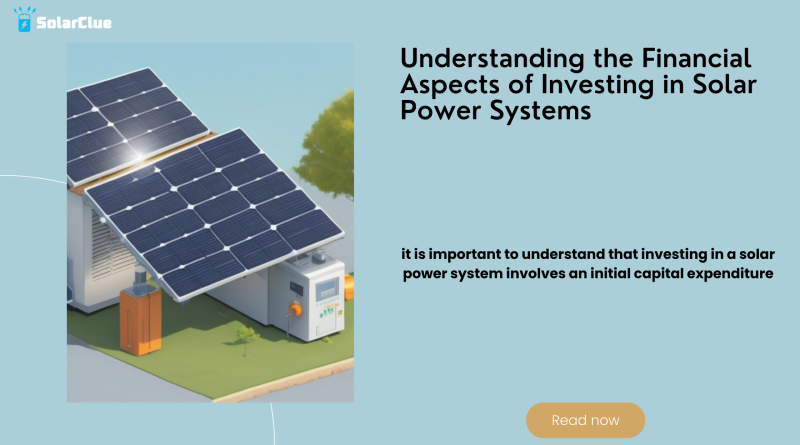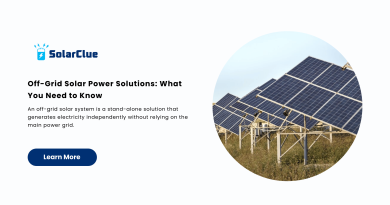Investing In The Future Understanding The Financial Aspects Of Solar Power Systems
As we forge on into the future, the need for clean, renewable energy sources becomes increasingly prevalent. One form of renewable energy that is rapidly gaining traction is solar power. The concept of harnessing the sun’s energy to power our homes and businesses seems almost too good to be true. It is, however, a tangible reality with numerous financial implications for individuals, businesses and entire nations. This piece aims to elucidate the financial aspects underlying solar power systems and their implication for our environment and future generations.
Investing In The Future Understanding The Financial Aspects Of Solar Power Systems
Table of Contents
Understanding Solar Power
Before delving into the financial aspects of solar power, it is crucial to understand how it works. Solar power systems draw their energy from the sun’s rays, converting it into electricity using solar cells, typically made from silicon. These solar cells are combined to form a solar panel, with multiple panels making up a solar array. Solar power is a sustainable, clean energy form with the potential to significantly reduce dependence on fossil fuels, thus contributing to carbon footprint reduction.
The Initial Investment
Firstly, it is important to understand that investing in a solar power system involves an initial capital expenditure. The cost of solar power systems has significantly reduced over the years due to technological advancements and increased market competition. However, installation, solar panels, batteries, and meters still demand a substantial initial outlay. It is also crucial to factor in possible ancillary costs such as upgrades to your property or business premise to accommodate solar power infrastructure.
Return on Investment
The key to truly comprehending the financial aspect of solar power lies in grasping its return on investment (ROI) potential. While the initial expenditure might seem daunting, the regular savings on utility bills due to reduced dependency on grid electricity make solar power a viable long-term investment. The time it takes to recoup your initial investment, known as the payback period, varies depending largely on the size of the solar power system, the geographical location, and the amount of sunlight received. However, on average, homeowners can expect the payback period to range between 5 to 10 years, after which they can essentially generate free electricity.
Government Incentives and Tax Breaks
Several governments worldwide are encouraging the shift towards renewable energy by offering various incentives and tax breaks. This includes feed-in tariffs, grants, rebates, and tax credits for purchasing and installing solar power systems. These incentives significantly lower the initial installation cost and augment the financial feasibility of solar power. However, it is essential to note these incentives vary across different regions and countries, and keeping abreast of these changes can be instrumental in maximizing return on your investment.
Investing In The Future Understanding The Financial Aspects Of Solar Power Systems
The Environmental Impact
While the financial aspects of solar power systems are certainly compelling, the environmental impact cannot be overstated. Solar power is a clean, green source of energy that significantly reduces reliance on fossil fuels, thus stabilizing greenhouse gas emissions. By investing in solar power, you are not only contributing to your financial well-being, but also doing your part for the environment, making a significant, positive impact on the trajectory of global climate change.
Conclusion
As the world grapples with environmental crises, the transition towards clean, renewable energy sources such as solar power is vital. Aspects such as reliable performance, government incentives, and a promising ROI make solar power an attractive, smart investment. Though the upfront costs can seem daunting, the long-term financial benefits combined with the sustainable environmental impact ensure solar power is the way forward into a greener, sustainable and financially secure future.
Here at SolarClue®, we offer a smart, practical, and “beautiful” solution. You will be answered for all the questions related to Solar.
We provide all kinds of brands that are the Best Solar panels in India.
If you are the one who is planning for the solar power system. Don’t hesitate to contact our team!
Looking forward to empowering you with solar energy, just like hundreds of our other clients!


